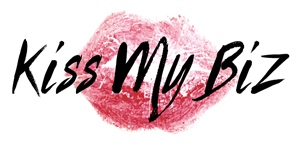If you’re an independent consultant or other type of freelance professional, you might not have drafted a formal business plan when you first went into business for yourself.
Business plans don’t have to be difficult to write. Use this business plan outline for a simple approach to a business plan for your consulting firm or freelance services.
Executive Summary
This is the first section of your business plan, but the last part that you should write. It’s a summary of the rest of your plan, and should amount to no more than a page or two. The Executive Summary is the first thing in your business plan that other people will read so, especially if you’re looking for financing, it has to convince the reader to finish reviewing your entire plan, by explaining the basics of what you intend to do with your proposed consulting firm or freelance business.
Business Description
You should use the Business Description to discuss what kind of consulting or freelance work you’ll perform, who your primary target market is (just briefly), where your consulting firm or freelance business is located (even if that means in your spare bedroom), what type of business entity you are using (sole proprietorship, corporation, etc.), a bit of background on yourself as the owner, and a brief history of the business, if you’ve been in business for a while and aren’t a new start-up.
Products and Services
You should list each product or service that you intend to offer through your consulting firm or freelance business. You should give as much detail as possible, including your general fee schedule (hourly, per project, value-based pricing, etc.), how you intend to handle delivery of any final products, and why you feel there is a need in your target market for each product or service.
Marketing
A Marketing Plan can be either a part of your business plan, or you can branch it out into a larger separate document. Either way, you’ll go into more detail about your target market, such as demographics, and you’ll need to list your competitors, evaluate your strengths and weaknesses in relation to them, and discuss your goals and marketing tactics for your consulting firm or freelance business. Researching other freelancers might be more difficult than researching competing businesses. A good tactic might be to search for their portfolios online, then request more information from them, as though you’re a potential client. Then you’ll get pricing information and see a sample of their work quality.
Management Team / Personnel
If you’re planning to run, or are already running, a consulting firm, and you have any employees working for you, you should use this section of your business plan to list the positions, costs of maintaining those employees, and each employee’s job description. If you’re a freelancer or independent consultant, you can just give more details about yourself. Include anything you would include on a resume.
Website Plan
This is a newer addition to business plans, and not every business uses one. Like the marketing plan, a website plan can be a part of the general business plan or completely separate. You can use it to discuss how you intend to use your business web site for marketing purposes, but also how you intend to use the site to present your products and services and to interact with your clients or customers. If you intend to use your website as a freelance portfolio, this is where you should plan it out.
Financials
You’ll need to include an opening balance sheet, a breakeven analysis, any budgeting materials, loan information, profit and loss statements, a list of all of your business assets (and your personal assets and financial history if you’re operating as a sole proprietor or freelancer), and any financial projections (generally for 3 years). Also include your business financial history if you’re not writing the business plan for a start-up, but rather for your existing business.
Appendices and Supporting Documents
You’ll need to be able to verify your financial history and projections with supporting documents. These can include tax returns, copies of resumes, professional licenses, loan documentation, contracts with suppliers, bank statements if you’re a sole proprietor, and any other documentation that could prove an assertion you made in your business plan.
Is there anything else you would suggest adding to a business plan? Leave a comment with your suggestions below.
This post was originally published here on March 10, 2007 and was republished with minor changes on its currently-listed publication date.
